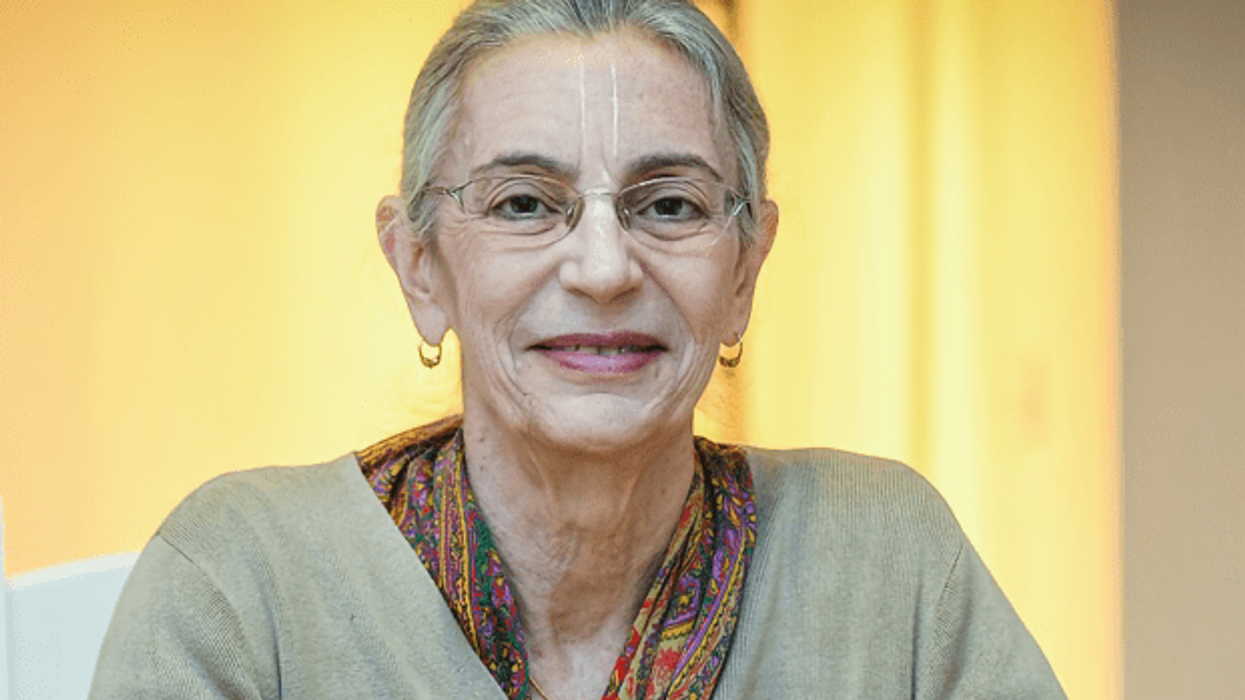MY PERSPECTIVE on life radically transformed when I heard the teachings of AC Bhaktivedanta Swami Prabhupada, the founder acharya of the International Society for Krishna Consciousness (ISKCON). One aspect of my many transformations concerned ethics.
Growing up in a society where people almost always put their own interests over others’ interests (and often at the expense of others’ wellbeing), I had assumed that this was normal – that society had always been primarily in the grip of self-interested people. So it was a surprise for me to read in Srila Prabhupada’s translation of the Srimad Bhagavatam (the ripened fruit of all Vedic literature), “In course of time it came to pass that people in general became accustomed to greed, anger, pride, etc.” (SB 1.14.5) In his commentary, Srila Prabhupada writes, “It appears from this statement that all these symptoms of degraded society were unknown to the people of the time, and it was astonishing for them to have experienced them with the advent of the Kali-yuga, or the age of quarrel.” Srila Prabhupada calls greed, anger, irreligiosity and hypocrisy ‘inhuman’ and, unlike today’s world, they were not always prevalent in society.
In another section of the Srimad Bhagavatam we hear about qualities that satisfy the supreme personality of godhead, for example mercy, tolerance, control of the mind and senses, reading of the scriptures, simplicity, satisfaction, observing the futility of the unnecessary activities of human society, considering whether one is the body or the soul, seeing every soul (especially in the human form) as a part of the supreme lord, and hearing about the activities and instructions given by the supreme personality of godhead. (SB 7.11.8–12)
As society gravitates toward ‘inhuman’ qualities, the great challenge for each of us is to be human, meaning to consistently resist the forceful currents of greed and lust that too often sweep us away. But how to remain ethical in an unethical society? Or, the first question may be: Why be ethical in the first place?
According to Srimad Bhagavatam, there’s a practical, down-to-earth reason to be ethical, and that is because unethical behaviour leads to misery. “Those in human society who are intelligent should give up the original cause of lamentation, illusion, fear, anger, attachment, poverty and unnecessary labour. The original cause of all of these is the desire for unnecessary prestige and money.” (SB 7.13.34)
Growing up in New York, USA, I had no higher objective in life than to make a good living through my chosen profession – photographic journalism – to live comfortably, and to be happy. I was convinced that this earthly life is all in all. My problem was that however much I accomplished it wasn’t enough; I was never satisfied, but perpetually eager to get things I didn’t have. Plus, as I saw people around me trying to move up in the world by practically any means, I thought I should do the same. Ethics be damned – just get ahead!
Then, through a series of exotic and unexpected adventures, I gradually came to accept that god is the source and proprietor of everything – all aspects of the entire material creation – and that, as the source and proprietor of everything, it all belongs to him. As god owns everything, everything is meant to be used for him. In other words, ultimately anything and everything is given by god for his service. As much as I could accept this simple, profound knowledge, my perspective radically changed. Why should I belittle myself, an eternal spiritual being, by hankering for the insignificant and transitory things of this world?
Similarly (and even more difficult to accept), if Krishna takes something away, then why should I lament? Ideally, I should think, “Krishna wanted to take it away from me. The supreme lord is the cause of all causes. He takes away, he also gives.” For me to accept such knowledge I often had to wrestle with my lower nature that wanted to control circumstances that were beyond my control. Yet, over time, I saw that knowledge of god and his power is so extraordinary that it can raise our awareness and improve our lives. We begin to see that every living being is a spiritual spark, part and parcel of god, and is his eternal servant. The wrestling match becomes a dance.
When I was disconnected from this transformative knowledge, cheating, greed, anger and envy seemed inevitable and normal. As I became a little aware of Krishna’s presence and my position as eternally subservient to him, my mind and sense quieted. Srila Prabhupada explains, “The world of hypocrisy can be checked only by counteraction through devotional service to the lord and nothing else.” (SB 1.14.4) This is just too sensible, reasonable and practical to ignore.




